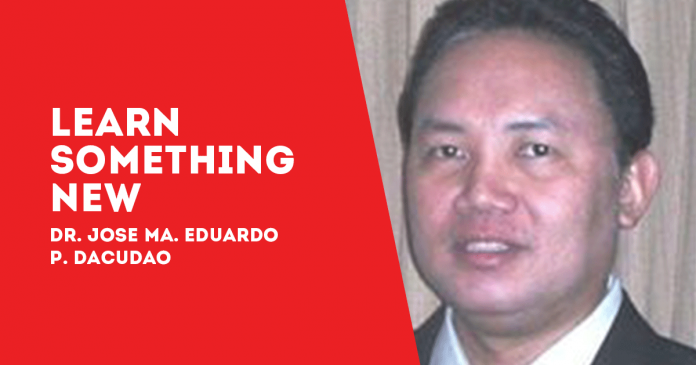
BY DR. JOSE PALU-AY DACUDAO
THE SCIENTIFIC Method was formalized and popularized by the person that is regarded by many as the greatest scientist of all time, Sir Isaac Newton (hence many thinkers actually regard modern Science as being founded by Newton).
Newton has important works in optics, astronomy, the development of the telescope, mechanics, and discovered calculus and the laws of gravity, inertia, and force that are much more important in our everyday technology and lives by several magnitudes than Einstein’s famous E=mc squared equation.
Equally important, I think, Newton also wrote about and insisted on empiricism in scientific investigations.
Having said that, it must also be said that Newton was a somewhat mystical person and an extremely cantankerous character who spent most of his energy in dabbling in alchemy and numerology.
He also acted as a British government spy against counterfeiters and probably causing several of them to get hanged, and campaigning against the Catholic Church in England.
Newton slept through meetings of the Royal Society of England which was a leading scientific organization that he headed in his time. He also character assassinated other prominent scientists who happened to cross him, including such towering greats as Gottfried Wilhelm Leibniz, whom he accused of stealing his ideas on calculus, and Robert Hooke whom he sarcastically implied was an intellectual and physical dwarf.
Newton was indeed a genius of geniuses; yet he was also enigmatically human. As a typical human being, he had his distinctly numerous very subjective escapades. Yet he was also the epitome of the scientific method. He insisted on empirical facts in his scientific works.
At the heart of Science is the assumption that it deals only with empirical facts, which is the same as saying that a Scientist confines himself to things that he senses (sees, hears, smells, tastes, feels with exteroreceptors in the skin or propioceptors inside the body).
Beliefs, ideals, ethics, morality, right or wrong, are outside the scope of Science, and are generally left to philosophers, theologians, and politicians.
Science deals with What Is and what can be predicted from what is (What Can Be), not with What Should Be. (To be continued)/PN



